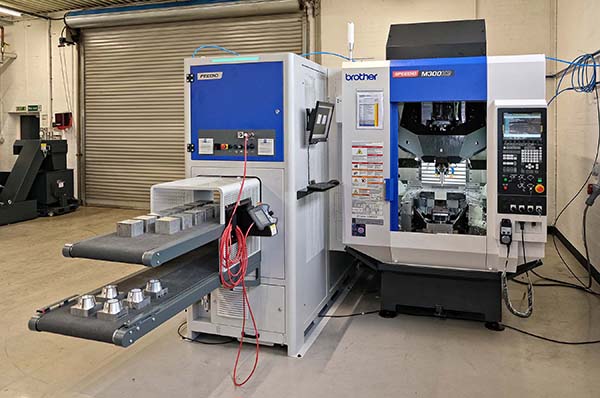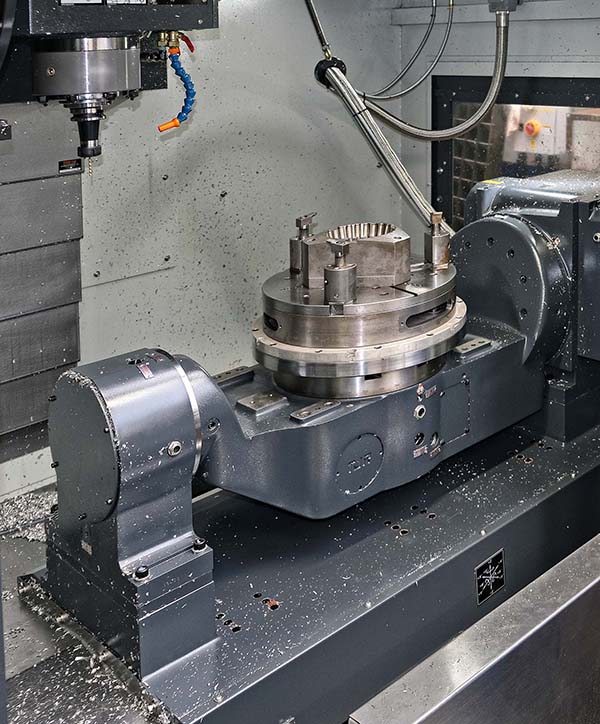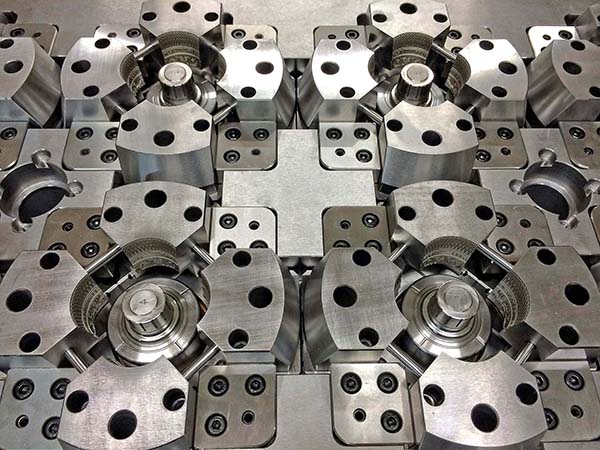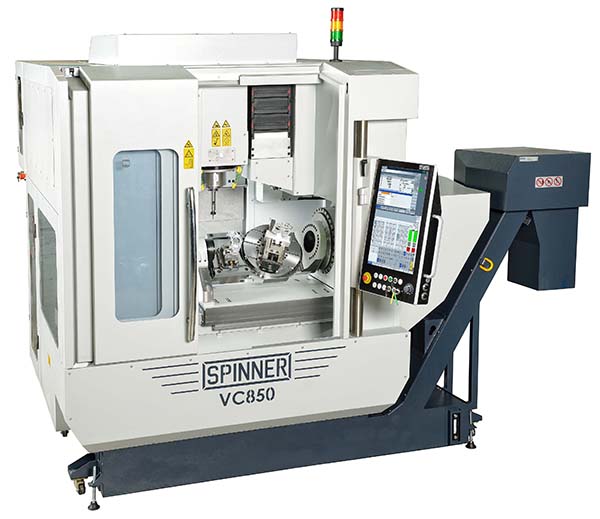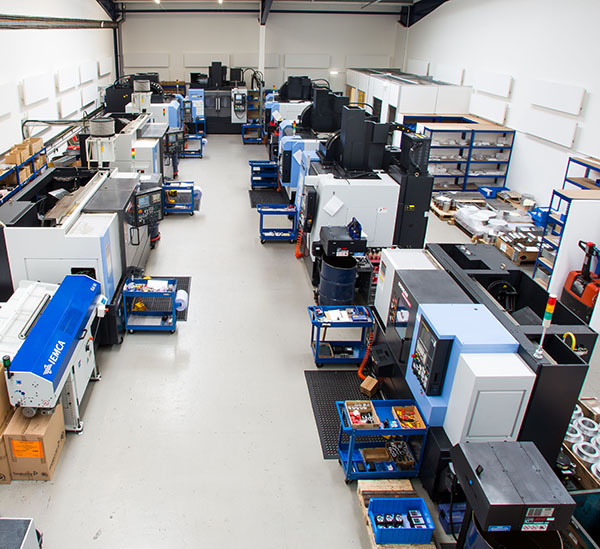
Speedio 30-taper, three- to five-axis machining centres built by Brother are able to produce components in such short cycle times that it is difficult to load raw material and unload finished parts by hand quickly enough. So to maximise production efficiency, the Japanese machine manufacturer introduced a robotic handling system, Feedio, at the EMO machine tool show in 2017.
Now, an automated cell comprising both products is available for demonstration in the showroom of UK sales and service agent, Whitehouse Machine Tools. The cell can show manufacturers the suitability of the configuration for unattended and overnight running in high-volume production environments.
A Speedio M300X3 trunnion-type, five-axis mill-turn centre has been chosen to demonstrate the benefits of the Feedio automatic load/unload system. The machine is able to perform prismatic and rotational metal cutting in one hit within a 300 x 440 x 305 mm working volume.
Notable features include a BIG-Plus face-and-taper contact spindle that accelerates from zero to 16,000 rpm in 0.2 second, a -30 to +120° tilting table axis, high-output turning capability that generates a maximum torque of 102 Nm and rotational speeds up to 1500 rpm from zero in less than 0.3 second, and a Brother control with increased memory for holding multiple programs.
To extract the most from this specification, the machine is linked to a Feedio component storage and robotic handling system developed jointly by Brother and ABB. This plug-and-play automation solution is able to serve either one machine, or alternatively two to enable op 10 and op 20 machining of prismatic parts on six sides. The automation unit is designed specifically for Speedio machines, rather than being a generic solution provided by a third party.
For further information
www.wmtcnc.com






